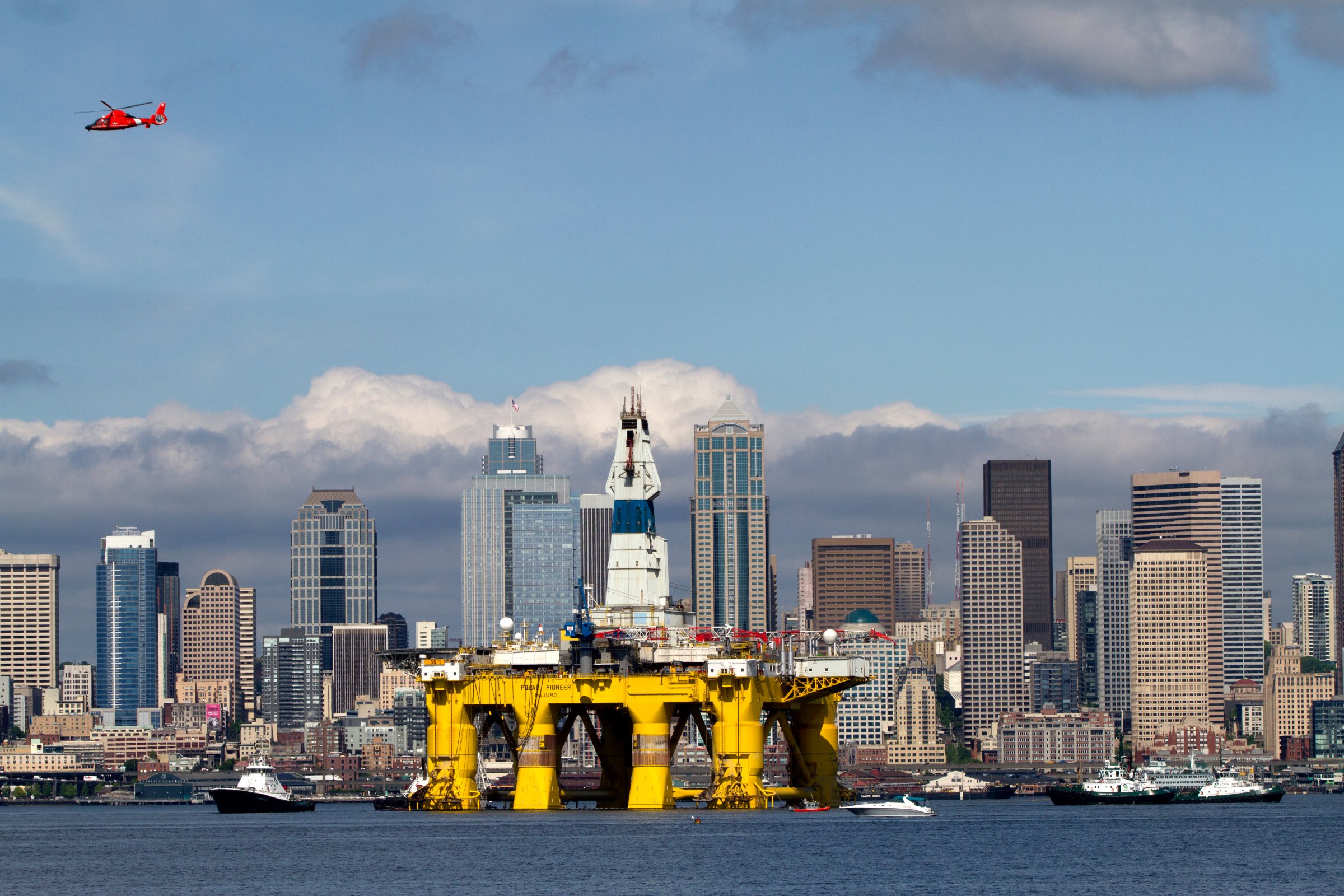
Royal Dutch Shell said Monday it will stop drilling for oil off Alaska’s coast. The move comes after Shell failed to discover a noteworthy amount of undersea oil in a well off northern Alaska despite spending $7 billion on exploration efforts.
The decision will undoubtedly please the many environmentalists who were against the project from the start. But their protests aren’t the reason Shell is calling it quits in Alaska. Instead, Shell’s decision was economic: The price of oil has dropped precipitously over the past year, meaning it’s getting much harder to make a profit on the stuff.
Since OPEC declined to cut oil production in 2014, oil prices have fallen by almost half in response to the glut of supply. Currently, U.S. West Texas Intermediate crude oil is trading at around $44 a barrel, while Brent crude oil is trading at around $47.
This means that the marginal costs of production — that is, the cost of pumping one additional unit of a barrel of oil to meet demands — are correspondingly high. As a result, oil production has also fallen, since there is no incentive to produce oil if its price is below production costs.
For Shell, all this means the high costs of looking for oil near Alaska, where no major discoveries were guaranteed, were just not worth it. Still, the company will take a notable financial hit for ceasing Alaskan operations. While Shell has yet to announce write-off charges, its Alaska holdings are valued at $3 billion, while the company is locked into another $1.1 billion in contractual commitments.
More Must-Reads from TIME
- Why Biden Dropped Out
- Ukraine’s Plan to Survive Trump
- The Rise of a New Kind of Parenting Guru
- The Chaos and Commotion of the RNC in Photos
- Why We All Have a Stake in Twisters’ Success
- 8 Eating Habits That Actually Improve Your Sleep
- Welcome to the Noah Lyles Olympics
- Get Our Paris Olympics Newsletter in Your Inbox
Contact us at letters@time.com